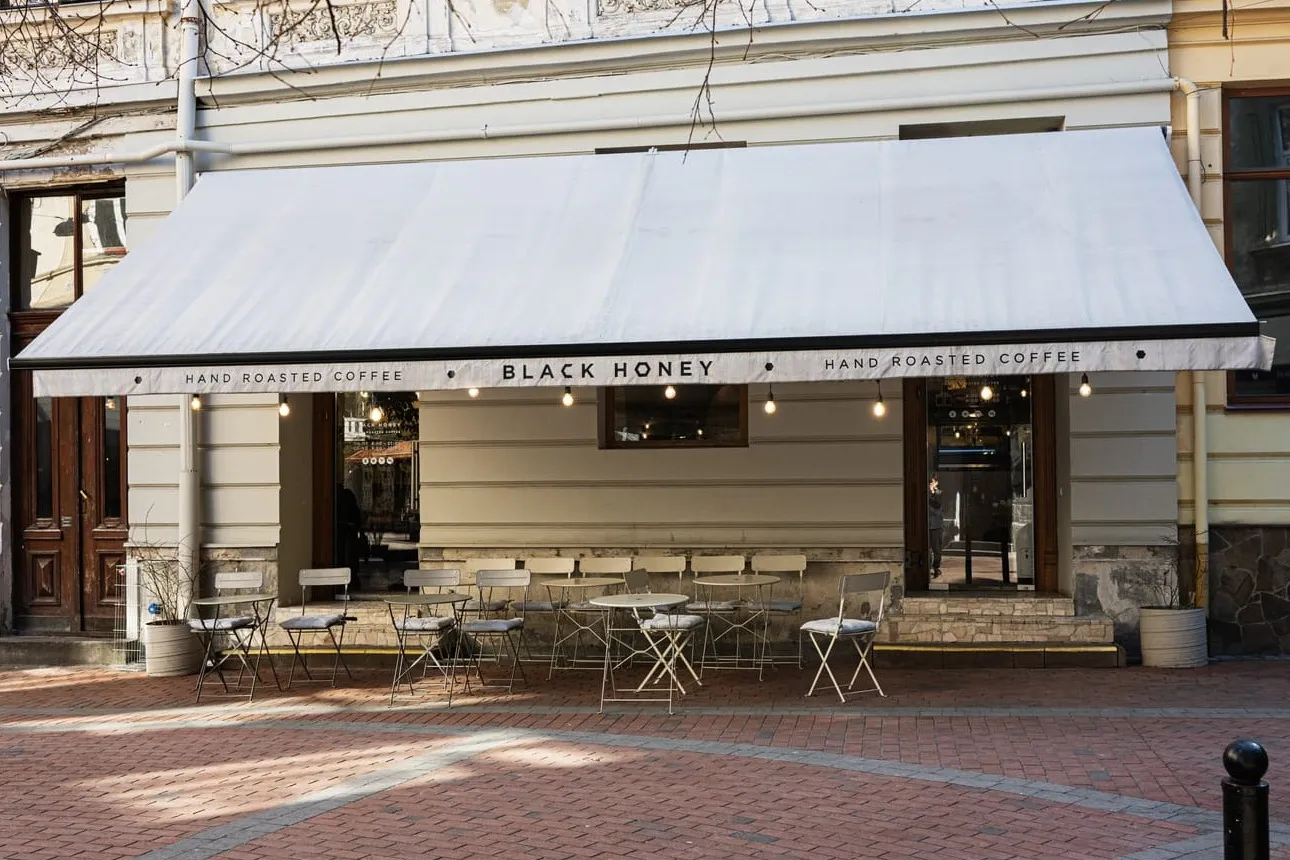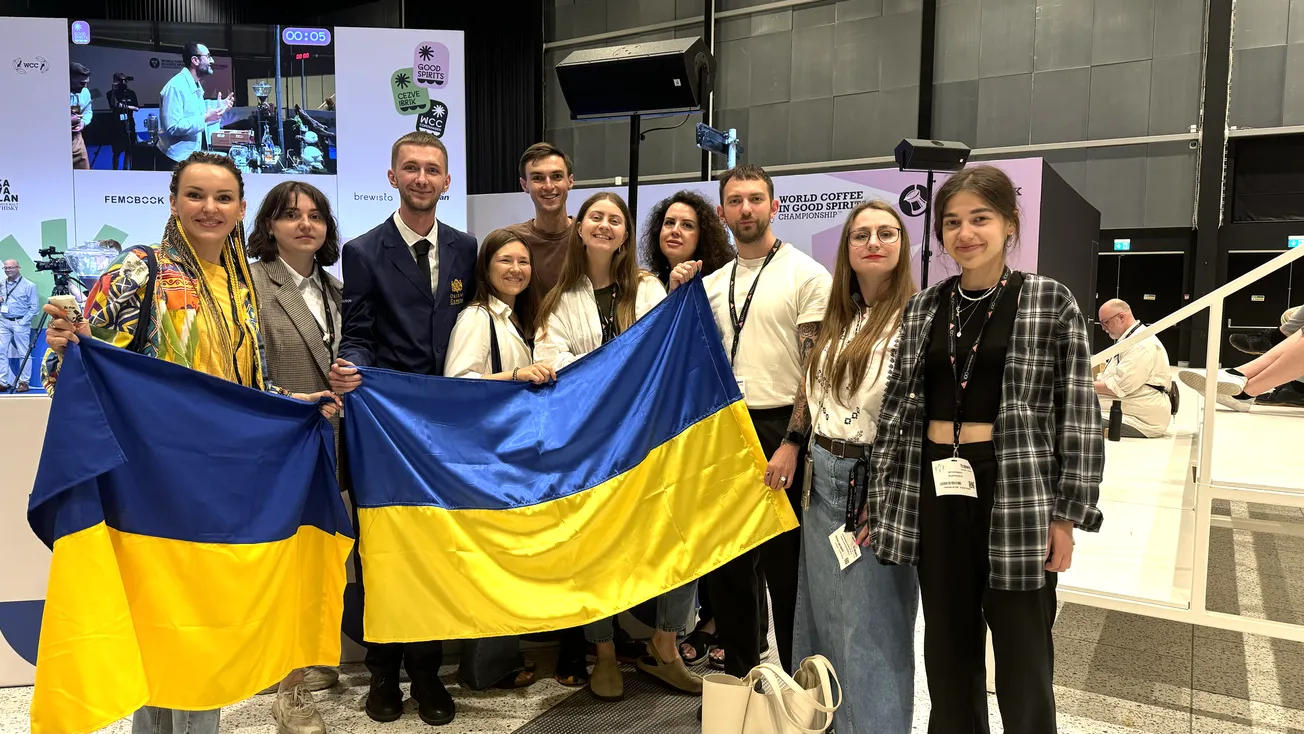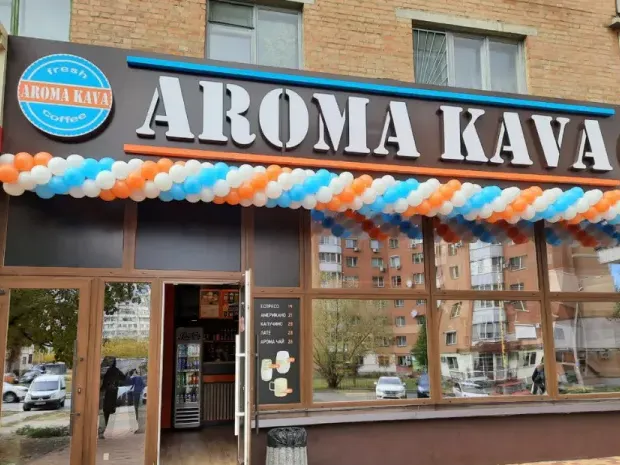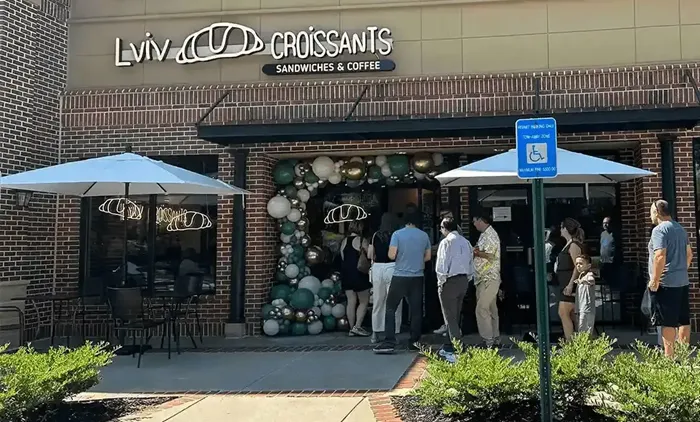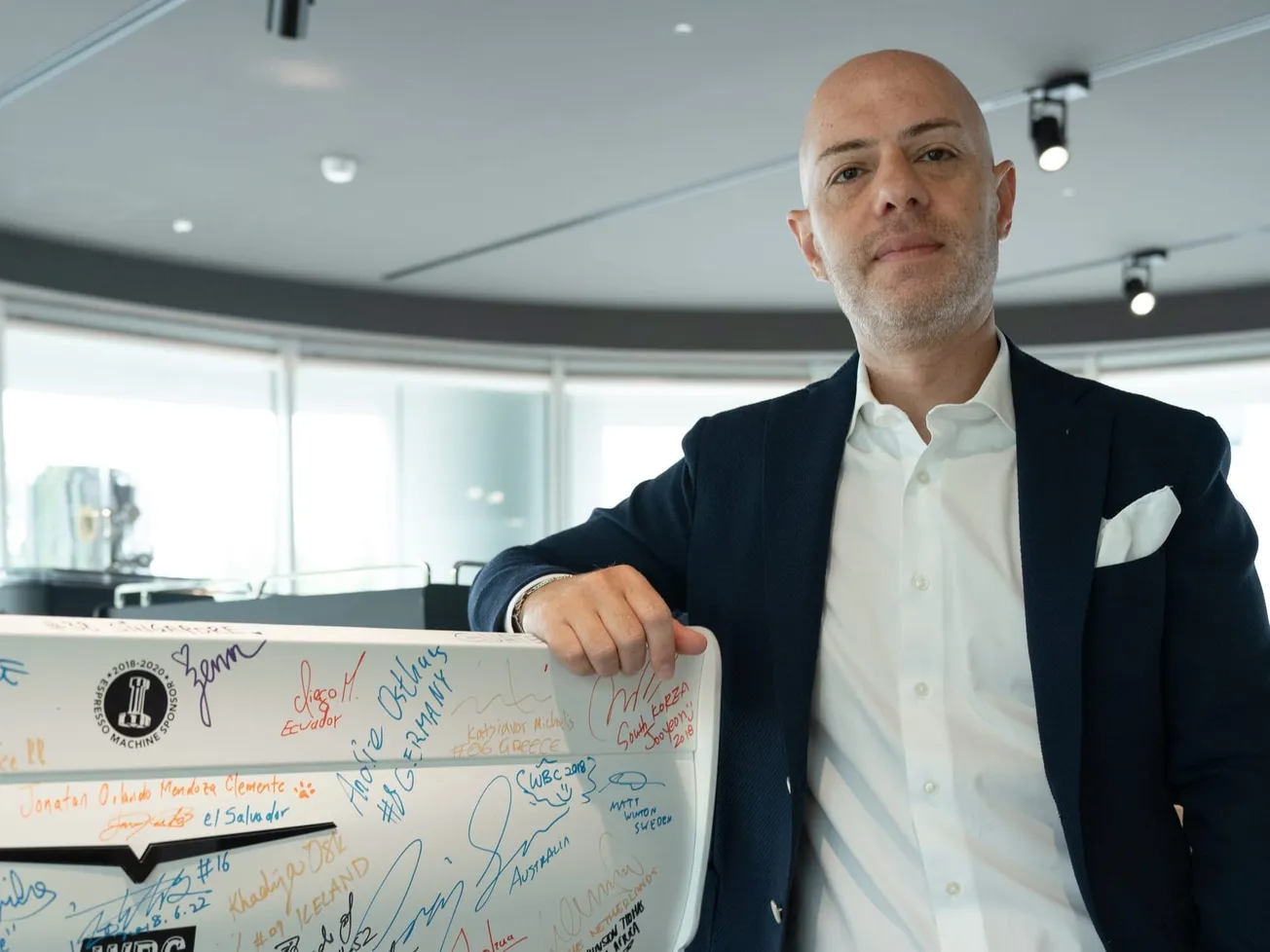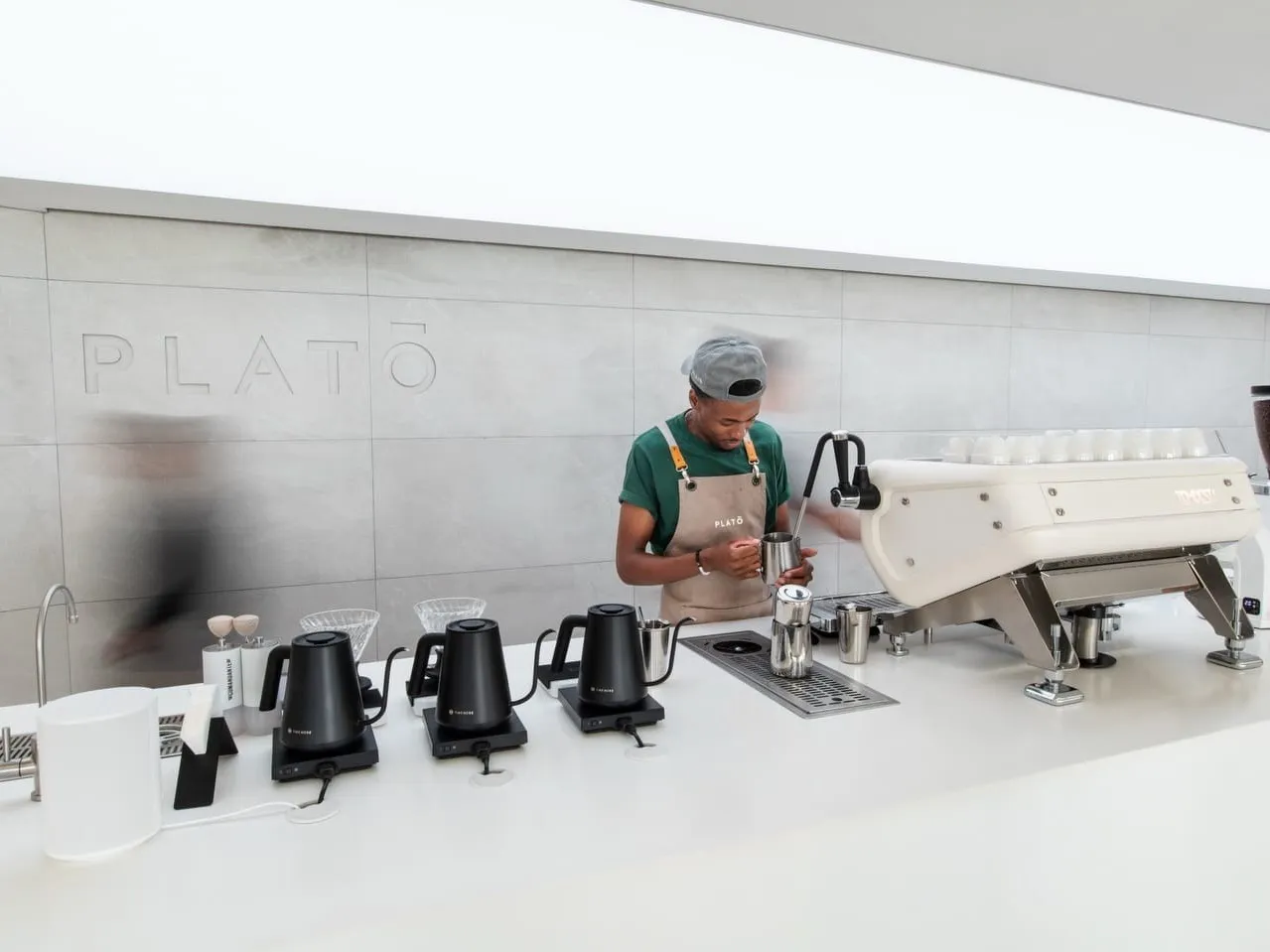Founded in 2018, Black Honey has become one of Ukraine’s most influential specialty coffee roasters. The business’s founder, Oksana Vitynska, speaks to World Coffee Portal about her remarkable career, how specialty coffee is creating community during conflict and why Ukrainian coffee can still compete with the best in Europe
Fresh from winning the national Brewers Cup championship in 2017, Oksana Vitynska put together a business plan for a specialty coffee business founded on the principles of craft, culture, innovation and education. After successfully raising $50,000 investment, Vitynska opened the first Black Honey coffee shop in Kyiv and its first roastery in Lviv in 2018.
Despite Russia’s ongoing invasion of Ukraine, Black Honey continues to thrive and today operates nine coffee shops, a roastery, a wholesale business and an e-commerce platform, employing 100 people.
What were your early experiences of coffee in Ukraine?
When I think about my first memories of coffee in Ukraine, it’s home, early mornings and the smell of ground coffee in a cezve. It was always served with sugar, sometimes cream, and it was more about the moment than the actual coffee. It was something warm and shared, rather than something we thought about deeply in terms of flavour or origin.
But the history of coffee in Ukraine goes way back to the 15th or 16th century via the Ottoman Empire. Some even say the first coffeehouse in what’s now Ukraine opened in 1676 in Kamianets-Podilskyi. By the 1800s, there were cafés in Lviv, which still feels like the capital of coffee culture here.
How did your coffee career begin?
My journey in the coffee industry began in 2003, when I was a third-year university student. I started working as a runner in one of the best coffee shops in Lviv, where I fell in love with coffee and gained hands-on experience in every aspect of the coffee business. I felt there was this incredible depth behind the drink – flavour, fermentation, origin stories – and I wanted to bring more of that into everyday life here. That’s what really started me on this journey and that early exposure shaped my passion and understanding of specialty coffee.
Later, I moved to Kyiv, where I managed a coffee roasting facility at a specialty coffee hub. While working full-time, I studied SCA-certified programmes, learning how to roast coffee, evaluate green beans and eventually became the first licensed Q Grader in Ukraine. In 2017, I won the national Brewers Cup championship, which further deepened my expertise.
While working in Kyiv, I created Black Honey as a premium coffee brand for wholesale distribution. However, within a few months, I found a beautiful location in Lviv and immediately took the keys, realising it was the perfect space for a specialty coffee shop.
I put together a business plan and pitched the idea to my employer, who agreed to invest around $50,000. That’s how Black Honey began – with a small team of five people and a clear vision.
Initially, we roasted coffee in Kyiv, but in 2018, we purchased our own small roaster and launched our in-house roasting facility in Lviv. At first, I personally roasted all the coffee, producing 80-100 kg per month.
The biggest challenge was balancing this while being a mother of three. At the time, my youngest son was just four months old. However, with the support of my husband, I managed to keep everything running smoothly, and we even sold our first franchise.
Today, Black Honey has grown into a network of nine coffee shops – three company-owned and six franchised. We also operate our own coffee roasting facility and a pastry production kitchen, both located in Lviv. Our roasting team consists of four people, and across the entire company, we employ more than 100 people.
From the beginning, my goal has been to create a brand that stands for quality, expertise, and consistency. Coffee is not just a product for us – it’s a craft, a culture, and a way to bring people together. As we continue to grow, I remain committed to innovation, education, and building a strong specialty coffee community.
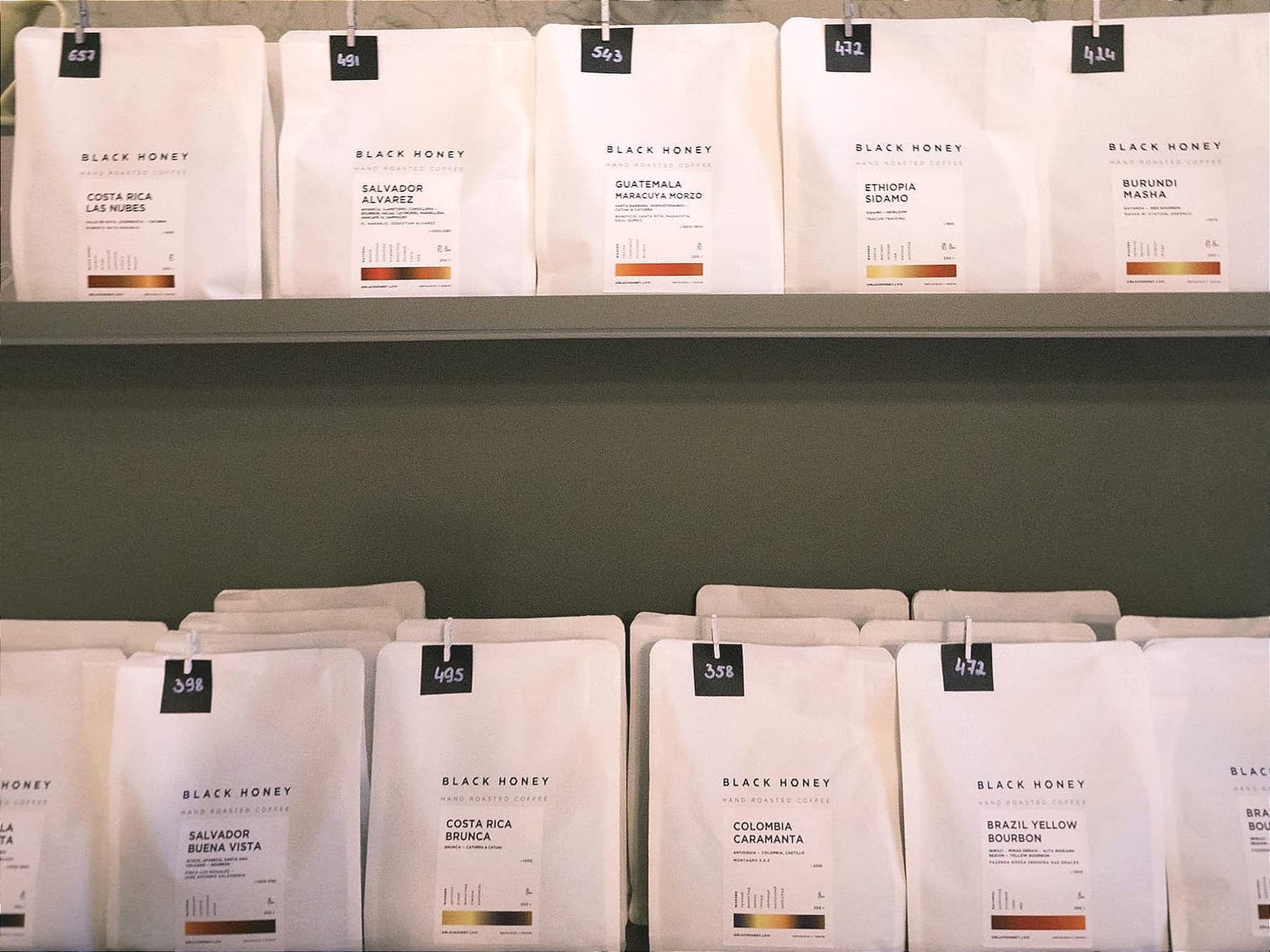
How has the Ukrainian speciality coffee market evolved in the last decade?
The specialty coffee market in Ukraine has gone through a huge transformation. What used to be a niche scene of baristas, roasters, and enthusiasts has now become a real part of urban culture. Instead of just drinking coffee to wake up, people started discovering real coffee culture with new flavours and interesting origins.
Ukrainian roasters started experimenting and even winning international competitions. Being a barista became not just a student job but a real career path, and dozens of new coffee shops opened.
The pandemic was a real test for Ukrainian businesses, and many closed, but those able to optimise processes and work online survived this crisis. Then, before we could emerge from the pandemic, war became another turbulent period, and we constantly need to solve worker shortages, power outages and other problems.
What’s really powerful is that market growth didn’t stop with the war. Coffee shops give us the opportunity to work, pay taxes, create jobs, and help the military. In many ways, coffee shops became places of strength and connection. A small but important reminder that even in difficult times, quality and care still matter.
How has Ukraine’s coffee industry adapted to the war?
The war has significantly changed Ukraine’s coffee market, but hasn’t stopped its growth. Many coffee shops in affected regions shut down or relocated stores to adapt to new realities.
The instability has also led to more entrepreneurs opening coffee kiosks and coffee trucks, which have in turn been supported by Ukrainians keen to support local coffee roasters and small businesses. Despite the challenges of war, demand for high-quality coffee remains strong. Ukrainian roasters have also started exporting more coffee abroad, and despite the difficulties, Ukraine’s coffee industry continues to grow and adapt.
As for Black Honey, we used to have coffee shops in Zaporizhia and Khmelnytskyi, but the war changed our plans. The Zaporizhia outlet was hit by a Russian rocket, and the venue in Khmelnytskyi closed due to a lack of people and an outflow of tourists. However, our business in Lviv remains strong, and we have been able to relocate some staff affected by those store closures here.
What are your hopes for the future of Ukrainian specialty coffee?
Ukrainian coffee culture is rapidly evolving, with an increasing number of specialty coffee shops and roasters enhancing quality and consumer awareness. Processes such as natural and honey coffee processing are gaining popularity, opening new opportunities for innovation.
Micro-lots and single-origin coffees continue to gain traction, while supply chain transparency and support for farmers are becoming increasingly valued.
Ukrainian coffee roasters have the potential to make their mark on the international stage. Expanding training programmes for baristas and enthusiasts could position Ukraine as a centre for coffee education in Eastern Europe.
Black Honey is also evolving daily. Our barista school is already operational, enhancing staff qualifications and training new specialists. We’re planning to open new coffee shops in Lviv, and we’re also seeking new investment to open coffee shops in Europe.


